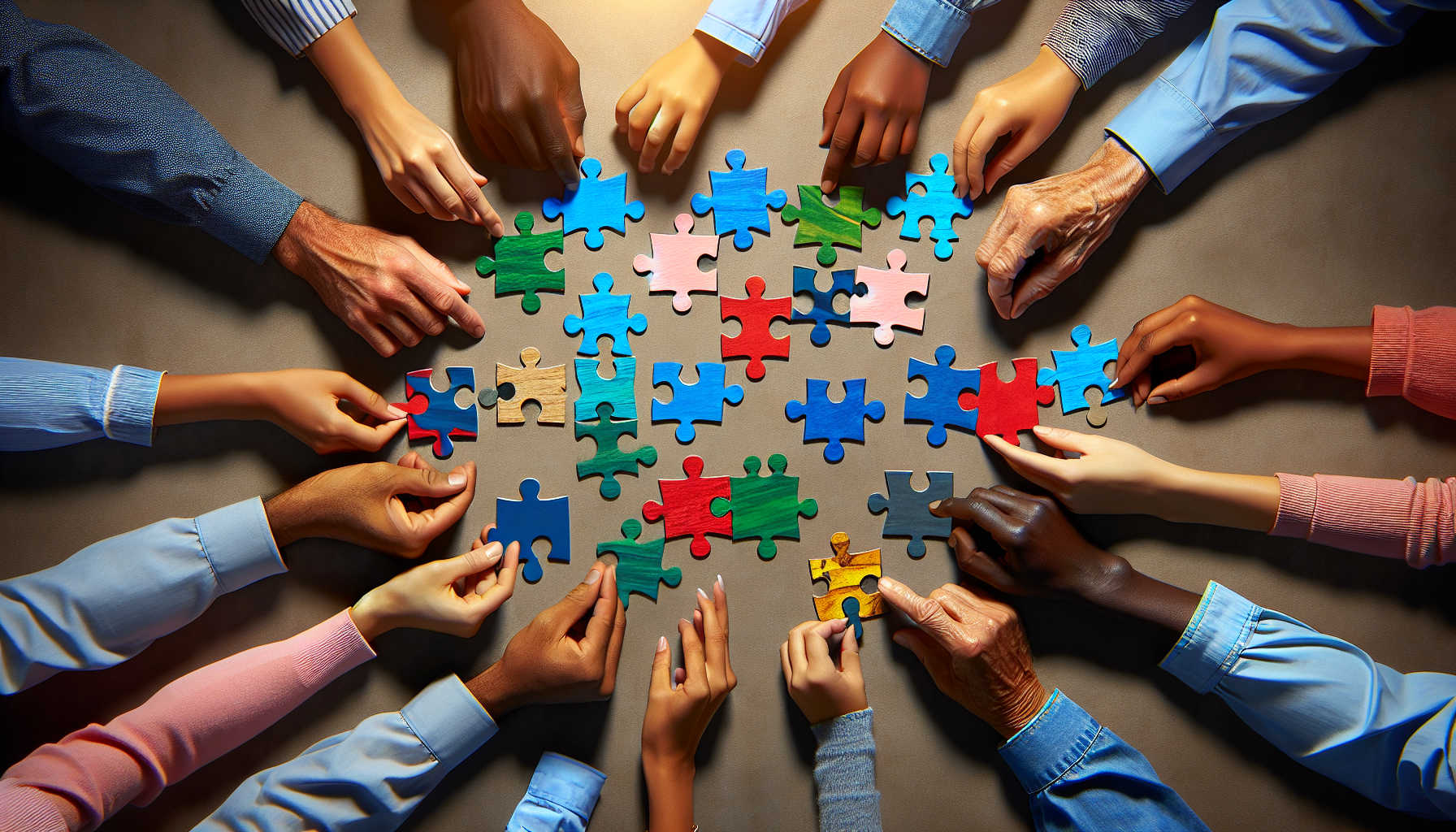The Psychology Behind Wordle: Why We Love Word Games

At its core, Wordle is a game that challenges players to think critically and strategically. Players are presented with a five-letter word and must guess it within six attempts, using feedback from previous guesses to hone in on the correct answer. This format encourages cognitive engagement and problem-solving skills, as players must constantly assess their strategies based on the feedback they receive. Research indicates that engaging in word games can enhance cognitive abilities, particularly in areas such as vocabulary acquisition and language processing. A study published in the journal Psychology and Aging found that regular engagement with word puzzles can improve verbal skills and even delay cognitive decline in older adults. As players navigate through the challenges posed by Wordle, they are not only having fun but also exercising their brains in a way that may contribute to long-term cognitive health. This aspect of cognitive stimulation is particularly valuable in a world where mental agility is often linked to overall well-being.
Emotional Rewards: Stress Relief and Satisfaction
Beyond the cognitive challenges, Wordle offers emotional rewards that contribute to its widespread popularity. The game provides a sense of achievement with each correct guess, culminating in a satisfying conclusion when players successfully identify the word. This sense of accomplishment can lead to a release of dopamine, the neurotransmitter associated with pleasure and reward. Moreover, the game's structure allows for quick gameplay, making it an ideal stress-relief activity. Players can engage with Wordle for just a few minutes, allowing them to take a break from the pressures of daily life. The simple act of solving a puzzle can serve as a mental reset, helping to alleviate feelings of stress and anxiety. In an era marked by fast-paced lifestyles and heightened stress levels, Wordle serves as a small yet impactful escape, inviting players to immerse themselves in a world of words and puzzles.
Building Community Through Shared Experiences
One of the most fascinating aspects of Wordle is its ability to foster connections among players. Many individuals share their daily results on social media, generating discussions and friendly competition within their networks. This communal experience transcends geographical boundaries, uniting people around a shared interest in wordplay. The act of sharing results not only reinforces social bonds but also encourages a sense of camaraderie. Friends and family members can compare strategies, discuss difficult words, and even celebrate each other's successes. This social dynamic is particularly significant in a world where digital communication often replaces face-to-face interactions. Wordle offers a unique avenue for connection, reminding us of the joy of engaging with others over a shared challenge. This sense of community can enhance emotional well-being and create a support system that extends beyond the game itself.
The Allure of Novelty and Challenge
Humans are naturally drawn to novelty and challenge, and Wordle delivers on both fronts. The daily puzzle format keeps players coming back for more, as they eagerly anticipate the next challenge. This element of surprise and the opportunity to showcase one's vocabulary prowess add layers of excitement to the experience. Additionally, the simplicity of the game's mechanics makes it accessible to a wide audience. Players of all ages can participate, from young children developing their language skills to adults seeking a mental workout. This broad appeal ensures that Wordle remains a popular pastime, as it can cater to diverse audiences with varying interests and skill levels. The challenge of a new word each day creates a sense of urgency and anticipation, further engaging players and enhancing their overall experience.
The psychology behind our love for Wordle and word games is multifaceted, encompassing cognitive stimulation, emotional rewards, social connectivity, and the allure of challenge. As players engage with this simple yet profound game, they reap the benefits of enhanced language skills, stress relief, and strengthened relationships. In a world increasingly reliant on technology and digital interactions, Wordle serves as a reminder of the enduring appeal of language and the joy of connecting with others through shared experiences. As we continue to play, we not only challenge our minds but also forge bonds that enrich our lives, proving that sometimes, the simplest games can have the most profound impact.
Game Psychologist
Riot Games, EA Sports
Core Responsibilities
Conduct research on player behavior and cognitive responses to games.
Collaborate with game designers to improve user experience based on psychological principles.
Analyze data to assess the impact of game design on player engagement and satisfaction.
Required Skills
Strong understanding of cognitive psychology and behavioral analysis.
Experience with statistical software for data analysis (e.g., SPSS, R).
Excellent communication skills for presenting research findings.
Common Employers
Game development studios (e.g., Riot Games, EA Sports).
Research institutions focused on gaming and psychology.
User Experience (UX) Researcher
Nintendo, Blizzard Entertainment
Core Responsibilities
Conduct usability tests to understand player interactions with games.
Gather and analyze feedback to inform design improvements that enhance cognitive engagement.
Create personas and user journey maps to guide the development process.
Required Skills
Proficiency in UX research methodologies (e.g., interviews, surveys, A/B testing).
Familiarity with design tools (e.g., Sketch, Adobe XD).
Strong analytical skills to interpret user data effectively.
Common Employers
Tech companies focused on gaming (e.g., Nintendo, Blizzard Entertainment).
Consulting firms specializing in user experience.
Community Manager for Gaming Platforms
Ubisoft, Bethesda
Core Responsibilities
Build and maintain online communities around games and gaming experiences.
Engage with players through social media and forums to foster a sense of connection.
Organize events and initiatives to promote community participation and interaction.
Required Skills
Strong social media skills and experience in community management.
Excellent communication and interpersonal skills.
Ability to analyze community feedback and trends to enhance engagement.
Common Employers
Game publishers (e.g., Ubisoft, Bethesda).
Online gaming platforms (e.g., Steam, Discord).
Content Strategist for Educational Games
Kahoot!, Duolingo
Core Responsibilities
Develop content that enhances cognitive engagement in educational gaming experiences.
Collaborate with educators to align game content with learning objectives.
Analyze player feedback to refine educational materials and improve outcomes.
Required Skills
Strong understanding of educational theories and game-based learning principles.
Excellent writing and editing skills for crafting engaging narratives and instructional content.
Experience with content management systems.
Common Employers
EdTech companies (e.g., Kahoot!, Duolingo).
Non-profits focused on educational initiatives.
Game Designer Specializing in Puzzle Mechanics
The Witness, Monument Valley, Electronic Arts, Activision
Core Responsibilities
Design and prototype engaging puzzle mechanics that challenge players' cognitive abilities.
Create game levels that balance difficulty and accessibility to cater to diverse audiences.
Work closely with artists and programmers to bring game concepts to life.
Required Skills
Proficiency in game design software (e.g., Unity, Unreal Engine).
Strong problem-solving skills and creativity in game mechanics.
Understanding of player psychology to enhance gameplay experience.
Common Employers
Indie game studios (e.g., The Witness, Monument Valley).
Large game development companies (e.g., Electronic Arts, Activision).


